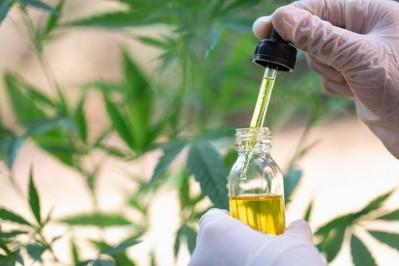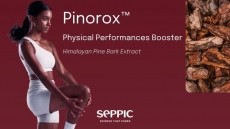Warning letter cites CBD’s regulatory status as leading issue

The letter, which was dated on April 28 and recently made public on FDA’s website, was addressed to The Dragontree Apothecary, a Boulder, CO-based dietary supplement and personal care products company. The letter was based on an inspection that lasted from August 12 to 21, 2019. Dragontree manufactures a variety of herbal supplement products, including several that prominently feature CBD.
Letter leads with regulatory status
As with other warning letters addressed to manufacturers of CBD products, Dragontree appears to have come to FDA’s attention as a result of a number of allegedly noncompliant disease claims. And the lengthy inspection of the company’s facility turned up a number of GMP failures, including deficiencies regarding master manufacturing records and batch production records, lack of detailed enough quality control procedures, inappropriate testing modalities, etc.
Where the Dragontree letter differs from most others is that the regulatory status of CBD is mentioned as a starting point, rather than an afterthought after the concerns had been addressed.
The first observation in the letter looks at Dragontree’s use of dietary supplement labeling for its CBD products.
“Although you intend to market CBD Inflammation Relief, CBD Headache Relief, and CBD Sleep Support as dietary supplements, FDA has concluded that based on available evidence that CBD products cannot be dietary supplements because they do not meet the dietary supplement definition,” the letter noted.
“FDA is not aware of any evidence that would call into question its current conclusion that CBD products are excluded from the dietary substance definition,” it added.
‘Full spectrum’ extracts vs isolates
After the passage of the 2018 Farm Bill the market floodgates opened for dietary supplements and other products containing hemp extracts and isolated CBD. FDA has made the determination that because CBD was first investigated as a drug before being developed as a supplement ingredient, by letter of federal law it cannot be used in dietary supplements.
This has led many ingredient developers to focus on so-called ‘full spectrum’ hemp extracts. There are cogent reasons for taking this approach to capture the potential synergistic effects of the source plant, which contains other cannabinoids beyond CBD as well as other constituents such as terpenes. But there has been a perceived advantage, too, in that making it clear that there has been no isolation of the CBD molecule and no attempt to boost its levels in the final extract will avoid raising the hackles of federal regulators.
Some industry stakeholders have pointed to a precedent in the case of red yeast rice, a natural source of lovastatin, which has been approved as a drug to lower cholesterol. In that ruling from years ago, FDA took the position that red yeast rice supplements could be brought to market, even though they technically contained a drug ingredient, as long as the manufacturers had not taken any steps to boost the lovastatin levels beyond those naturally expressed in the fermentation process.
Is that what formulators are basing their decisions on? Is this the view that FDA has used to decide how to enforce federal regulations in the case of hemp-based products?
It’s anyone’s guess, because most companies are operating in a ‘don’t ask, don’t tell’ mode when it comes to how their products fit into federal regulations. And FDA itself does not have formal enforcement policy when it comes to these products.
Lengthy deliberation undermines agency’s authority
And so it’s a cause for speculation if this new letter signals a change in FDA’s thinking. But attorney Marc Ullman, of counsel with the firm Rivkin Radler, said the letter stands out from the normal run of CBD warning letters.
“The letter raises a number of issues with the way it structured, especially with making the status of CBD as a dietary ingredient the first issue,” Ullman told NutraIngredients-USA.
Ullman said he believes FDA’s lengthy deliberation in the matter, which has seen thousands of technically illegal products debut on the market in the meantime, has undermined the agency’s authority.
“What happens if a company like this were to address the claims issues (and the GMP shortcomings) and ignores the CBD question? What then? Is this going to be the only company that is forced to stop selling CBD just because of its regulatory status?” Ullman said.
Issue has hung fire
It has been more than a year since FDA convened a public meeting on CBD/hemp extracts and promised at that time quick action on the issue. The most recent communication from FDA on the subject of CBD came on March 8, and was seen as largely a recap of earlier positions and promises of future action such as reopening the federal docket for submissions from industry.
“We recognize the significant public interest in CBD and we must work together with stakeholders and industry to develop high-quality data to close the substantial knowledge gaps about the science, safety and quality of many of these products. We are committed to working efficiently to further clarify our regulatory approach,” the agency said in that statement.
On the subject of safety the agency said, “We will continue to monitor the marketplace and take appropriate action against unlawful CBD products that pose a risk of harm to the public.”
Ullman, however, said the lack of clear rules on CBD products has made for a rough and tumble marketplace with a wide variety of players, some of whom are focused on quality, while others are less so.
“In my opinion FDA has set the stage for a potential public disaster. The message is, ‘Don’t do it. Don’t market CBD as a supplement. But we’re not going to stop you.’” Ullman said.

















